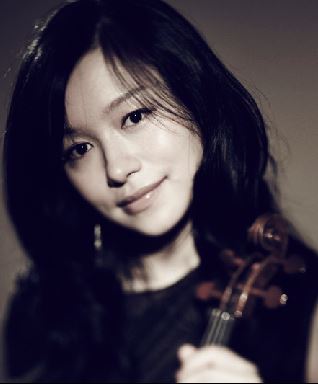CELEBRATING THE CHINESE NEW YEAR WITH THE VSO
Soloists, VSO/ Long Yu, Orpheum, February 8, 2014
Long Yu
The first concert in the VSO’s Pacific Rim Festival featured mainly compositions by Chinese composers with three Chinese soloists, ranging from 9 year old piano protégé Serena Wang to distinguished Deutsche Grammophon recording artist, cellist Jian Wang. While such a concert could easily have turned out to be no more than comfortable family entertainment, in fact the result was almost exactly the opposite. There was some very serious music-making here.
Perhaps unexpectedly, the highlight of the night turned out to be the very young Serena Wang’s performance of Beethoven’s Piano Concerto No. 1. These days, recitals by child pianists often invite praise (frequently by devoted mothers) on the basis of the dazzling technical abilities they exhibit in shorter display pieces. But how often does a 9 year old take on a complete Beethoven concerto? Not very often. This performance was remarkable because it did not bring attention to technique. Its keynote was the young pianist’s remarkably mature grasp of Beethoven’s complex emotional and dramatic postures.
Serena Wang
Right from the opening, one gained confidence in Serena’s playing, so aware was she of the phrasing, and the balance between attack and repose, needed to move the music in the right direction. The slow movement was, for the most part, beautifully exposited and the rollicking finale certainly did not catch Serena short of bubble and humour. Naturally, there were a few moments where the pianism could have been more focused, but I am convinced that if you were simply given a CD of this performance and told that it was by an accomplished mature pianist, you would most likely accept it. In this case, one mature artist who contributed greatly was conductor Long Yu, who showed great patience, control and awareness in guiding the exposition forward. Serena’s Chopin encore did give us a taste of her considerable virtuoso skills, but what one remembers most is probably her meltingly-beautiful delivery of the more tender passages.
Wen Wei
Jian Wang
Although based on a touching story familiar to every Chinese youth, Chen Gang’s Butterfly Concerto is still only intermittently played in the West. Perhaps the work is somewhat lightweight and sprawling in structure but, as played here, it certainly reveals moments of great beauty, power and inward involvement. I cannot visualize a much better performance than 32 year old violinist, Wen Wei, gave. This tall violinist, prize winner in the Sibelius International Violin Competition and Decca recording artist, delivers such clean, long lines, perfectly sensitive to the Chinese phrasing and texture that gives the work authenticity. Her playing was simply pristine here, and when the work gave her an opportunity to display her supreme virtuoso skills, Wen Wei did exactly that -- with no feeling of ‘show’ in her efforts. I would like to see Wen Wei and Long Yu record this concerto.
There are many bigger cello parts that Jian Wang might have played for us on this occasion but it was sort of endearing that he was slightly overshadowed by his younger compatriots. Here we had French/ Chinese composer Qigang Chen’s ‘Reflet d’un temps disparu for Cello and Orchestra (1995/96), a work originally pioneered by Yo-Yo Ma. This is thoroughly modern music, partly naturalistic, partly cinematic, perhaps borrowing some of the spirit of Chen’s teacher, Olivier Messiaen. Much of the cello part lies in its upper register (almost that of a viola) with the instrument operating as a ‘voice’ sometimes and taking on an obbligato role other times. Much of the playing is relatively quiet. There no way to describe Jian Wang’s execution of such difficult passage work as other than masterly – so clean, so assured, and so flexible. And I think the content of this challenging work was strongly communicated by both soloist and orchestra. The common element in all these performances was of course conductor Long Yu, who really is a very fine conductor.
© Geoffrey Newman 2014
THE CONCERT EXPERIENCE
Wen Wei
Jian Wang
Serena Wang plays Kabalevsky
Serena Wang



